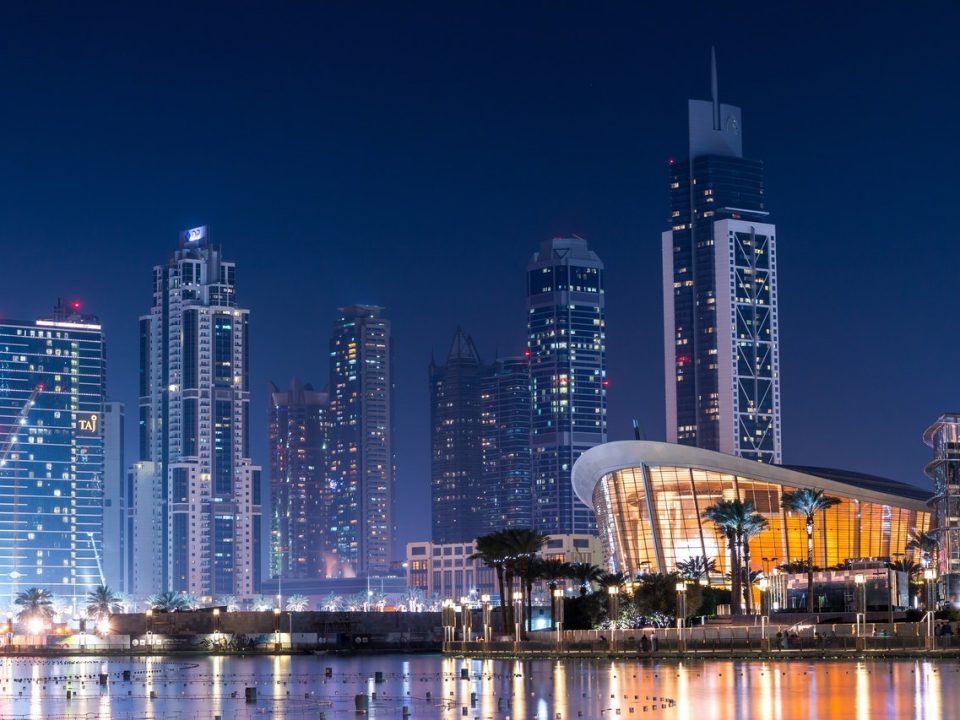

Indian Investment on the Rise in Dubai
20 April 2017

The Abu Dhabi residential real estate market holds significant potential for investors seeking stable, mid-term returns. A new report from property information firm Reidin and commercial lender Global Capital Partners indicates that Abu Dhabi’s residential real estate sector will see similar growth rates to those witnessed in Dubai, over the next three years.
Changing fortunes
The short-term outlook for the United Arab Emirates’ (UAE) housing market, suggests that tough times may be ahead. Recently, ratings agency Standard & Poor’s (S&P) projected that UAE residential prices and rents will decline in 2017, continuing a trend which began in 2016. S&P attributed this to falling oil prices, a commodity upon which the Emirati economy is dependent, as well as both the rising value of the US dollar, which has “diminished purchasing power and weakened investor sentiment.”
The mid-term forecast for the Abu Dhabi market in particular, however, appears more positive. This was attributed this to rising demand for mid-income housing in the Emirati capital. The middle class is a powerful force in the UAE’s property market. According to the Short List, a local news source, they now account for more mortgage enquiries than any other income-bracket. Abu Dhabi is an attractive place for the middle class to live, due to its status as the Emirati capital, which brings strong job opportunities and high living standards, explaining why they will fuel demand for housing in the city.
Abu Dhabi vs Dubai
In their report, Emirati news outlet The National writes, Reidin and Global Capital Partners compared the Abu Dhabi and Dubai residential real estate sectors. The Dubai property market saw significant growth between 2004 and 2008, but this has moderated in recent years, with house prices dropping by 13% between December 2014 and December 2016. But Abu Dhabi’s housing values only saw a decline of 9% during the same period, perhaps suggesting that it holds more potential to investors.
The Dubai residential market’s first growth cycle, which occurred between 2004 and 2008, attracted investors. One was property developer Emaar, which constructed 7% of Dubai’s current housing stock. Reidin and Global Capital Partners noted that another developer, Aldar Properties, is making a similar move, by building housing in Abu Dhabi. The firm has built 10% of Abu Dhabi’s current residential stock and plans to construct a further 1,500 units per year, focusing on mid-income housing.
Paradigm shift
The companies argued that Aldar’s plans signal a “paradigm shift” in Abu Dhabi’s residential property. Explaining, report author Sameer Lakhani said: “Given the recent announcements of Aldar, we expect there to be a growth surge in the next three years as Aldar capitalises on mid-income market opportunities to balance the housing market in Abu Dhabi. This would be similar to the growth that Emaar witnessed in its growth spurt phase in the first real estate cycle of 2004-2008.”
Continuing, Lakhani said: “With the imminent entry of Aldar into the mid-market segment, there is likely to be a proliferation of communities that will increase the volume and breadth of product on offer, heightening investor activity as a result… similar to… Dubai.” One area flagged by the report was freehold residential property, which accounts for 57% and 20% of Dubai an Abu Dhabi’s housing stock respectively. 50% of Dubai’s freehold homes sell at under Dh1,000 per square foot, while this figure sits at just 18% for Abu Dhabi, indicating the latter market’s greater prospects for profitability.
Significant potential
Commenting on the Reidin/Global Capital Partners report, Samir Salya, the Chairman of Reign Holdings, a firm which specialises in British and Emirati property development, said: “Abu Dhabi is becoming a very desirable place to live, drawing middle income earners in ever-greater numbers. This is heightening demand for mid-income housing and firms such as Aldar Properties are seeing the benefits of entering the capital’s residential real estate sector. This suggests that Abu Dhabi’s housing market could see sustained growth, potentially supplying investors with stable mid-term returns.”
Samir Salya
Samir Salya is the Chairman of Reign Holdings and is involved in real estate and construction within the UAE and UK. Samir holds over 20 years of experience in executive management, business expansion, performance improvement, sales and marketing.
Related posts

Copyrights © 2020 Reign Holdings. All Rights Reserved.


